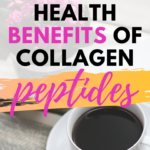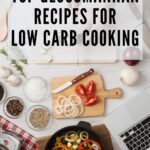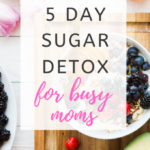Some posts on this blog contain affiliate links. If you click them, I earn a small commission. It does not cost you anything extra, but this commission helps support the work of running this site. The views and opinions expressed on this blog are purely my own.
Dangers of Artificial Sweeteners
Sugar is everywhere. We know we get too much of it. Can we break the sugar habit?
We as Americans have a sugar tooth. It seems like we can’t enjoy anything unless it is covered in sugar or artificially sweetened. It would probably the best for us if we can completely eliminate the desire for something sweet except from fruit sources. However, all of us enjoy a sweet treat every now and then.
We were told to kick the sugar habit by switching to artificial sugars. No calories = no weight gain…. It seemed like the perfect solution to us since processed white sugar was so terrible. We all switched, but we were still gaining weight. What in the world?
Aspartame only makes sugar craving worse and causes you to overeat… causing even more weight gain.
Here is a little about artificial sweeteners and how they can be much worse than sugar itself:
Aspartame is very unhealthy for us. It is documented that it can cause memory loss as well as brain damage: here here and here.
When you eat aspartame, it causes a rapid fire of neurons, naming it an excitotoxin. This over time causes brain cells to be damaged and die off.
From Mercola.com
The excess glutamate and aspartame slowly begin to destroy neurons. The large majority (75 percent or more) of neural cells in a particular area of the brain are killed before any clinical symptoms of a chronic illness are noticed. A few of the many chronic illnesses that have been shown to be contributed to by long-term exposure to excitatory amino acid damage include:
Multiple sclerosis (MS), ALS, Memory loss, Hormonal problems, Hearing loss, Epilepsy, Alzheimer’s diseas Parkinson’s disease, Hypoglycemia, AIDS, Dementia, Brain lesions, Neuroendocrine disorders
Also from Mercola.com, Aspartame has been linked to:
Headaches/migraines
Nausea
Abdominal pains
Fatigue (blocks sufficient glucose entry into brain)
Sleep problems
Vision problems
Anxiety attacks
Depression
Asthma/chest tightness.
What about Splenda?
From Mercola.com:
Splenda:
- reduces the amount of good bacteria in your intestines by 50 percent
- increases the pH level in your intestines, and
- affects a glycoprotein in your body that can have crucial health effects, particularly if you’re on certain medications”
More about splenda here and here.
Artificial sweeteners have even been linked to weight gain.
This is from thetruthaboutsplenda.com and Dr.Mercola:
Splenda causes gastro-intestinal problems, migraines, seizures, dizziness, blurred vision, allergic reactions, blood sugar increases, and weight gain.
So, no splenda, no aspartame? What can I eat?
If we are supposed to be eating all natural, what are our best choices for sweetener?
Jordan Rubin, author of the Maker’s diet, recommends unheated raw honey (no more than a tablespoon per day), Stevia, and maple syrup in the last phase (phase 3). Ideally, you could satisfy a sweet craving with some fruit – like a smoothie maybe.
We primarily use Stevia. If I’m baking, I have a few recipes that use honey or maple syrup. I normally sweeten naturally with fruit sources like applesauce when making thing for Aidalyn. We find Stevia at our local grocery store and buy it on Amazon. It is much sweeter than sugar in the packet form, so you would only add a little bit for sweetness. Here are some cookies that are low in sugar: Apple Oatmeal Cookies.
Stevia is a naturally sweet plant, but is concentrated in a powdered form. I do have some raw stevia that I bought online, but I don’t use it too often.
Here’s the Stevia I primarily use for the family, this liquid form is really convenient for coffee or tea especially.
Trim Healthy Mama (a great book I’ve previously reviewed) recommends using stevia for a sugar substitute. They also recommend using xylitol and erythritol (non-GMO sources) for natural sugar substitute options.
You can buy the book here:
More Tips for Cutting out the Sugar in Your Diet here.












We’ve done a series on this very topic – busting sugar in the home. My favorite tactic is to mix a sugary food with a less sugary version to slowly cut back. This is a great one to use with kids. Allows you to gradually cut them back. I also remind myself regualrly that strawberry season is coming and if I can get my tastebuds off so much sugar, the berries will taste that much better. 🙂
Great idea. I love berries & used to only love them dipped in sugar. Now they are so sweet by themselves. You are so right! When you can recalibrate your taste buds, you will enjoy food so much more.
We have also used some Organic Agave sweetener. It still has the calories of sugar, but is low GI. I am the same way, I used to eat all my fruit dusted in sugar! I am glad we have “seen the light” before Graham knew about sugared strawberries! 😉
I have a natural sweet tooth for sure – but it is getting better and I’m having less cravings = I’m getting healthier.
[…] Here is a previous post I wrote about dangers of artificial sweeteners. […]